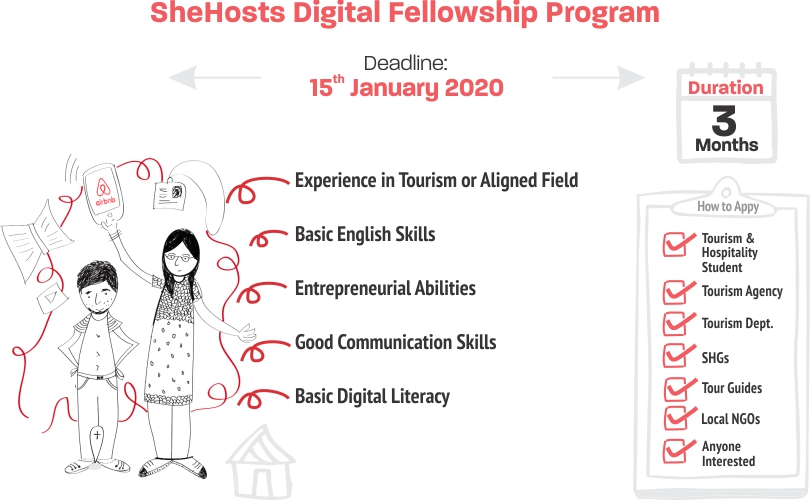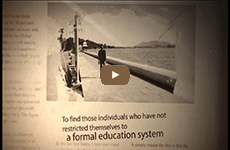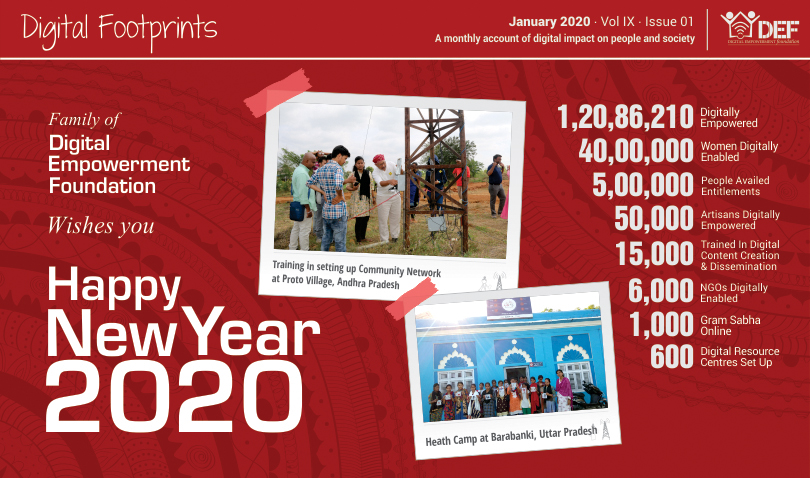

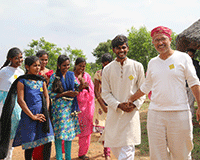
Launched in 2002 with a vision to digitally empower marginalised communities living in information poverty, DEF has marked its presence in 700 locations in 123 districts across 23 states in India. Over the years, through various challenges and experiences, DEF has observed that even though the condition of villages has not improved much economically, but there has been a significant rise in number of smartphone owners. A large number of these smartphone owners are the youth of the village, though the interest is more on social interaction than for any educational purposes. Read More






eNGO Challenge Awards, a DEF- initiative, recognizes non-profits from across South Asia and Africa to enable, empower and promote organisations at grass-root levels and their impact-oriented initiatives by equipping them with Information and Communication Technology (ICT) tools. eNGO strives to build and strengthen many not-for-profit organizations and helps them to become mainstream and sustainable entity with the help of new age tools. Read More

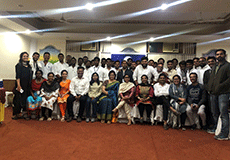
A four day (from December 2 to December 5) a Refresher Training was conducted in Jaipur for all the Project Officers(POs) and Centre Coordinators(CCs) of Smartpur. Around 40 people from across India participated in this training. The aim was to enlighten the team about the vision, mission, objectives and model of Smartpur. A special exhibition was held where each state was given a chance to present their work in a unique way. Ms. Manisha Singh, Head - Communications and CSR, India Market at Nokia along with Ms. Ruchi Jolly, COO, Niiti Consulting also attended the training. Read More
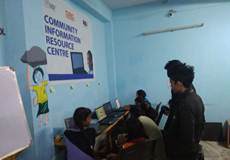
In collaboration with UWD and Deloitte, Digital Empowerment Foundation is working towards spreading the information and digital services to deprived communities of Delhi and Gurugram, in the first week of December. Three CIRCs will be dedicated to the local community to provide digital educational information, information support system along with digital services in various domains such as health, education, skills, and livelihoods. The beneficiaries comprise of adolescent girls and women below 40 years of age. These women & girls can be school dropouts, School goers, College dropouts, Housewives, working as well as non-working women. Read More
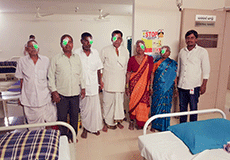
Smartpur is more like a revolution with an aim to build a village which is digitally developed into digital villages in India. Under this project an Eye screening camp was organised at Nelapatala Spoke Centre on December 24, supported by Anand Eye Institution. During the camp 13 patients were detected with severe eye issues and were recommended surgery. Out of 13 patients, 6 had undergone eye surgeries which were successfully completed. Read More

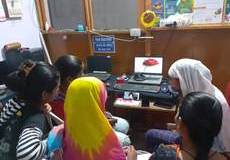
The GOAL teams of Gadchirolli had signed off their year with an interesting idea, which they will be going to implement in the year 2020. Mentees will go through the page of Humans of New York and Bombay, understand its idea and relate the same with their village situation and accordingly they will create their page called humans of GADCHIROLLI under the supervision of Mentor Swastika Jajjo. As a part of their activity, out of Five Mentees three have already started interviewing the villagers and have come up with some emotional stories which the villagers have shared. Read More

Bharat Rural Livelihoods Foundation (BRLF) was set up under the Ministry of Rural Development by the Indian Government as an independent society. BRLF along with Indian Institute of Health Management Research University’s (IIHMRU) CPRL provides a 6 month residential certification course for the tribal communities across the country. As a part of the curriculum, students travel through 10 states which are a part of the Central Indian tribal belt and learn from the leading organizations working to improve and expand the scope of rural livelihood. This program is a hands-on field based learning system. DEF as the part Read More

TIKTOK, which is the leading platform for short form video, has formed an exclusive partnership with DEF to build capacity and awareness of the youth towards—Online safety, Digital Well-Being and Best Practices in Educational Content on TIKTOK—through comprehensive workshops in 10 states of India—Delhi, Rajasthan, Madhya Pradesh, Karnataka, Kerala, Maharashtra, Gujarat, Punjab, Tamil Nadu and West Bengal. The partnership will reach out to 100,000 beneficiaries. Read More

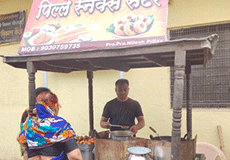
Nilesh Pille, a 35 year old man is a digital empowerment student who lives in Vikasnagar Ghorpadigaon and has four members in his family. He has studied up till 12th standard and works in a company as a tele caller. He left his job due to some unavoidable reasons and he enrolled in himself into Pune Digital Connect programme. This course helped him in learning how to get self-employed through training sessions. He then applied for shop act licence and a passport and now owns a dosa centre and earns Rs 16,000-17000 a month.
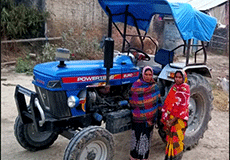
Jamuna Devi, wife of Arun Kumar is a 35 years old Farmer. She is a resident of Karor village, a place in the remote corners of Haryana. Her husband owns a piece of land for which she is a farmhand. But since she hasn’t got a formal education, she was unaware of the government benefits she is entitled to. Mala Yadav, a SoochnaPreneur, with her laptop and internet came to her rescue and enrolled her under farmer registration and in SHG group of the village. Read More
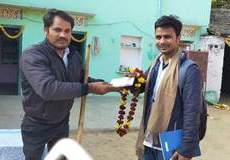
Khushi Ram, a 30 years old Samarth SoochnaPreneur, resides in the village of Kararia, Block Untwal, in Alwar district, Rajasthan. He is an energetic man with zeal but has a clubfoot by birth which restricted his ability to become independent. He used to teach in a government school but was unable to sustain his expenses. He came to know about the Samarth SoochnaPreneur programme initiated by DEF by one of his friends and the district coordinator Shalu Yadav. They explained that the programme provides a means for livelihood for the differently based especially in backward villages of India. Read More


This year’s Digital Citizen Summit (DCS) saw a deep dive into the intractable online (mis)information landscape. It sought to unravel the complex strands of policy, practice, and social reality in order to develop an in-depth and thorough understanding of the complexity of an information landscape. DCS 2019 brought together subject-matter experts, academics, policy-makers, lawyers, technologists, and members of the civil society in order to facilitate learning, knowledge-sharing, and sharing of collective experience in order to identify the next steps towards developing holistic solutions to meet the intensifying challenges confronting society and citizens through the phenomenon of misinformation. Read More
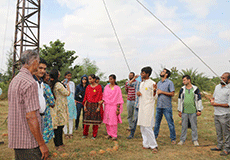
Considering the trends across worldwide, the Internet is pretty much becoming subject to the whims and fancies of telecommunication companies besides the fact that they do not reach each and every corner of any country. We have also seen that once there is an Internet shutdown or censored, almost all modes of communication also get subjugated and compromised. This raises the question whether internet is owned by handful of people or people own the internet in real sense. One of the ways to deliver that access is through community networks. Read More



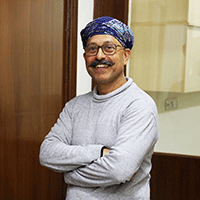

In the conversations around #MeToo, the voice of the rural and small town women reporters from lesser privileged circumstances and socio-economic situations, with little or no access to support groups or social media platforms have been glaringly absent. In light of this, Khabar Lahariya, an Indian newspaper, started the ‘#MeToo Open Letter’ to draw attention to the rural and small town women journalists. Khabar Lahariya is an Indian newspaper, published in various rural dialects of Hindi, including Bundeli, Bajjika dialect and Avadhi. The focuses on gender and education. Initially seen as a women-only publication, it now covers local political news, local crime reports, social issues and entertainment, all reported from a feminist perspective.
House No. 44, 3rd Floor, Kalu Sarai, New Delhi | def@defindia.net | www.defindia.org | +91-11-26532786
